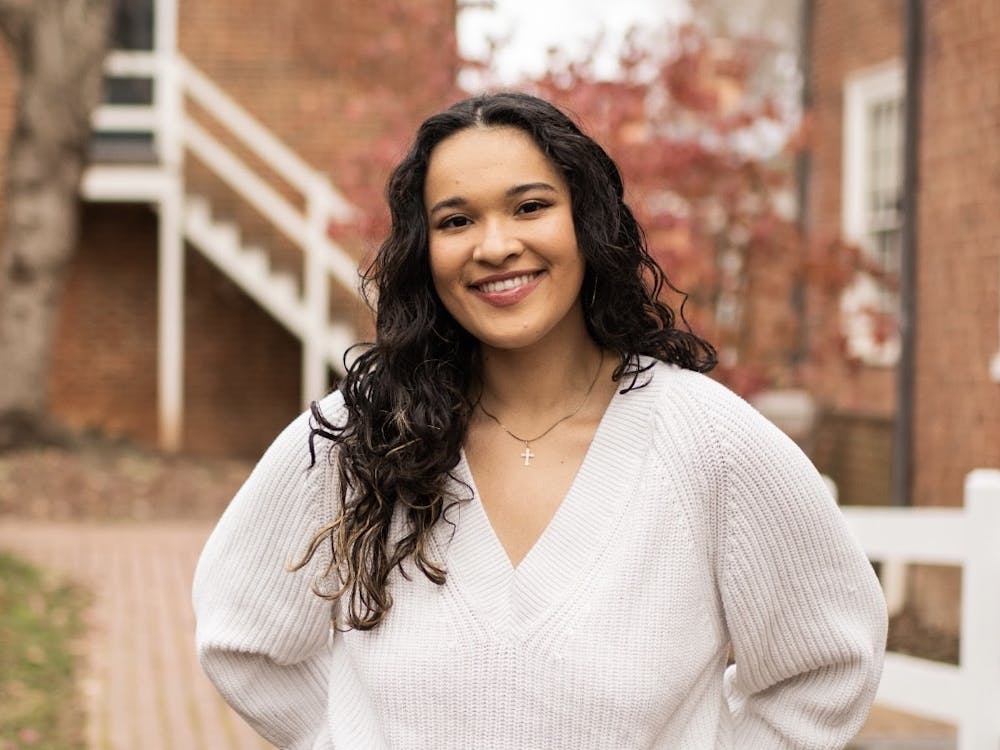I woke up with two black eyes. I was getting ready before I had to deliver my acceptance speech for junior class president, hastily applying cover-up to my injuries. The night before I had been so exhausted after school, meetings and two soccer practices, I had succumbed to my anxiety and hit myself in the face over and over again. My only concern was to “stay tough” and avoid any stigma by ensuring the injuries would go unnoticed during my acceptance speech. And they did; no one noticed.
This has been the story of my life for as long as I can remember, where I strived to be perceived as perfect though inside my own head I struggled with anxiety. My family’s methodology on mental health was “mental toughness,” where being mentally strong and simply pushing through could overcome any internal or external obstacle. I lived with plaguing feelings of worry and inadequacy; masking these feelings constantly would lead to inevitable explosions, where to release adrenaline I would hit myself in the face.
It was only my friends at the University — the idealists who will become future advocates and policymakers — who helped me accept I am living with sometimes debilitating anxiety, and that’s okay. I was hesitant to admit my ideology of “mental toughness” is truly more an ideology of ignorance; it was a Band-Aid that could never truly heal my anxiety, even if it did mask this condition to outsiders. My friends told me I was brave rather than weak for seeking to better my mental health, and their support propelled me to take action. It took me three years even in the safety of the University’s bubble to become confident enough in myself to start seeing a psychologist and begin living a happy, healthier life. And so far, I had...
With no way to pay for my own law school, I began to explore the option of entering the military as an intelligence officer; the post-9/11 G.I. bill will pay for undergraduate or postgraduate schooling in full after a soldier completes his four-year commitment with at least 36 months of active duty. I’m qualified for an analyst position; I am working on an 80-110 page thesis focusing on Westerners’ radicalization to violent Islamist extremism. I got a near-perfect score on the ASVAB, the test required for all applicants to any branch of the military, and recruiters were impressed with my grades and experiences. I finally had my life figured out; where not only was I being proactive to better my mental health but I could rest easy knowing I had a solid path to reach my career goals. That is, until it came to sharing my medical history.
The military defines general anxiety as a “neurological disorder with psychotic features,” which bars entrance to the military. On the medical history questionnaire for the Marines, Prozac, my prescribed anxiety medicine, is listed in the “History of Drug Use” section, along with crack-cocaine, heroin and other illegal street drugs. After I completed the form, the recruiter sent me a two-line text to inform me that as long as I was prescribed anxiety medication, I would be disqualified from the military.
I am not psychotic nor have I ever been. I also was not applying for a position in combat but rather a domestic office on base. I subsequently telephoned the recruiters from each branch to explain my anxiety is manageable but chronic, so advising anyone to “go off” the medication to be able to join the military was philosophically incorrect and realistically dangerous. Still, I am completely disqualified to join any branch of the armed forces until I stop using any anxiety medication for 1-2 years; I must be “cured.”
I even asked directly, “So, you’re telling me it would be better for me to have unaddressed or ignored anxiety than to learn how to successfully manage it?” After a long pause the recruiter said, “I don’t make the rules.” These are the same rules that list “transsexualism, exhibitionism, transvestitism, voyeurism, and other paraphilias,” which aren’t even close to correct terminology, as “psychosexual conditions” that also result in immediate disqualification from military service.
So who does make the rules? The idea that a person is more qualified to get a gun and fight for our country if she is living with ignored chronic anxiety or other mental health problems rather than attempting to address it with medication or therapy is ludicrous. It promotes a dangerous climate of neglecting very real problems, which continue to result in disaster: the 2013 Washington Navy Yard shooting perpetrated by a former Navy sailor suffering from mental disease, as well as the Fort Hood shooting perpetrated by a former Army major, are just a couple examples. In 2010, it was estimated that as many soldiers in the army were dying from suicide as from combat in Iraq. It is no secret the military has struggled to address mental health problems like post-traumatic stress disorder and other conditions affecting its veterans.
The National Institute of Mental Health estimates anxiety affects 40 million adults in the United States, which is 18 percent of the population, making it the most common mental illness in the United States, as well as the one of the most common on college campuses. No doubt this many people “afflicted” with anxiety means there are many service members silently dealing with anxiety out of fear of reprisal. The Anxiety and Depression Association of America reports, “Anxiety disorders are highly treatable, yet only about one-third of those suffering receive treatment.” Yet, the stigmatization of a mental health condition by military officials only exacerbates the problems related to mental health already plaguing the organization that has so far failed to effectively address the problems. Clearly, no huge strides have been made in combatting the stigma associated with mental health problems.
Through this experience, I have learned that outside the protection of the University’s bubble, it is still a scary world out there, but one that we must remain passionate to change. It is not enough to fight for understanding about mental health on grounds at the University or even in the greater Charlottesville community. Misperceptions and stigmatization are rampant across the United States and must be addressed — soon.
Stephanie Sacco is a fourth-year in the College.




